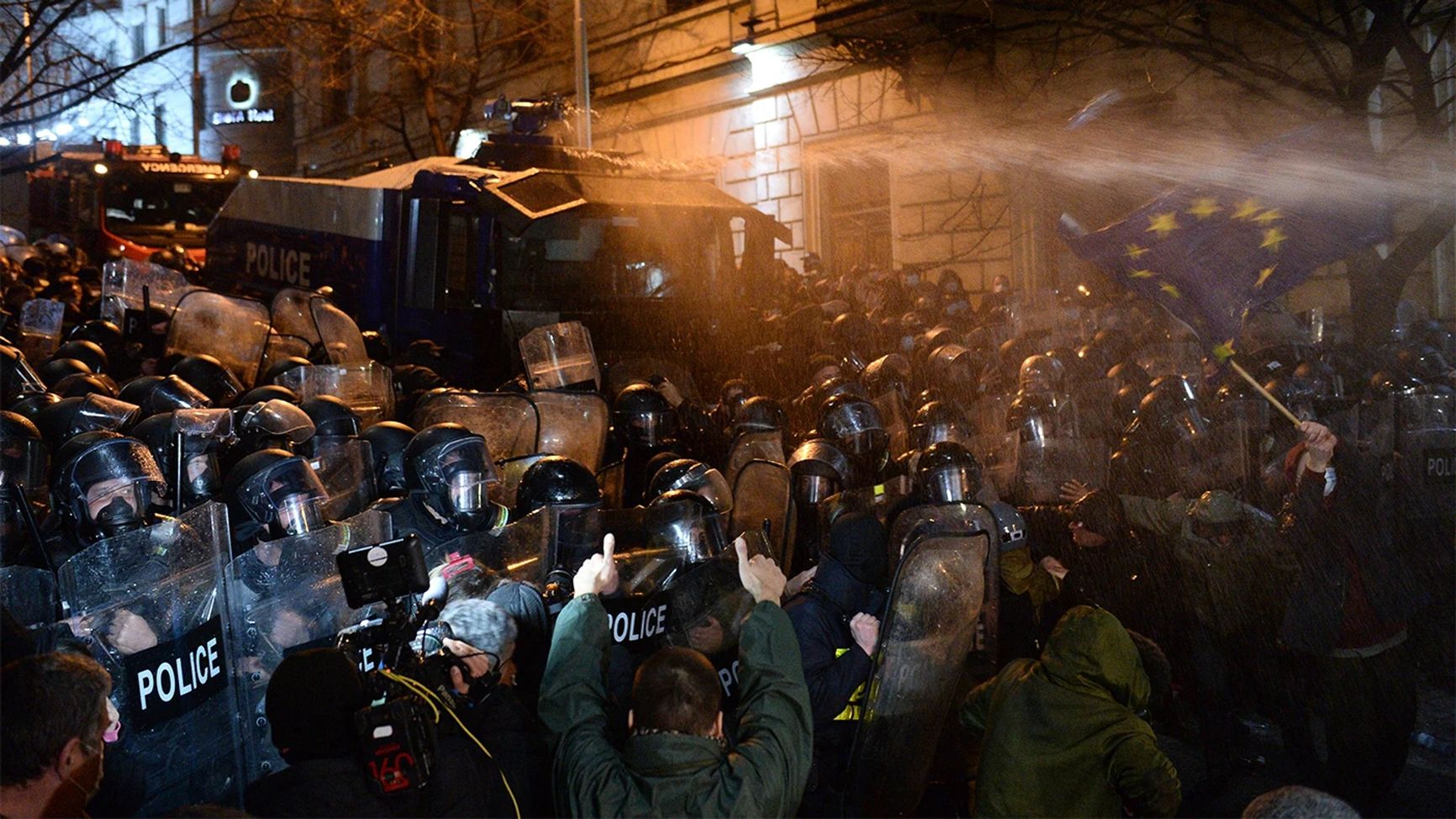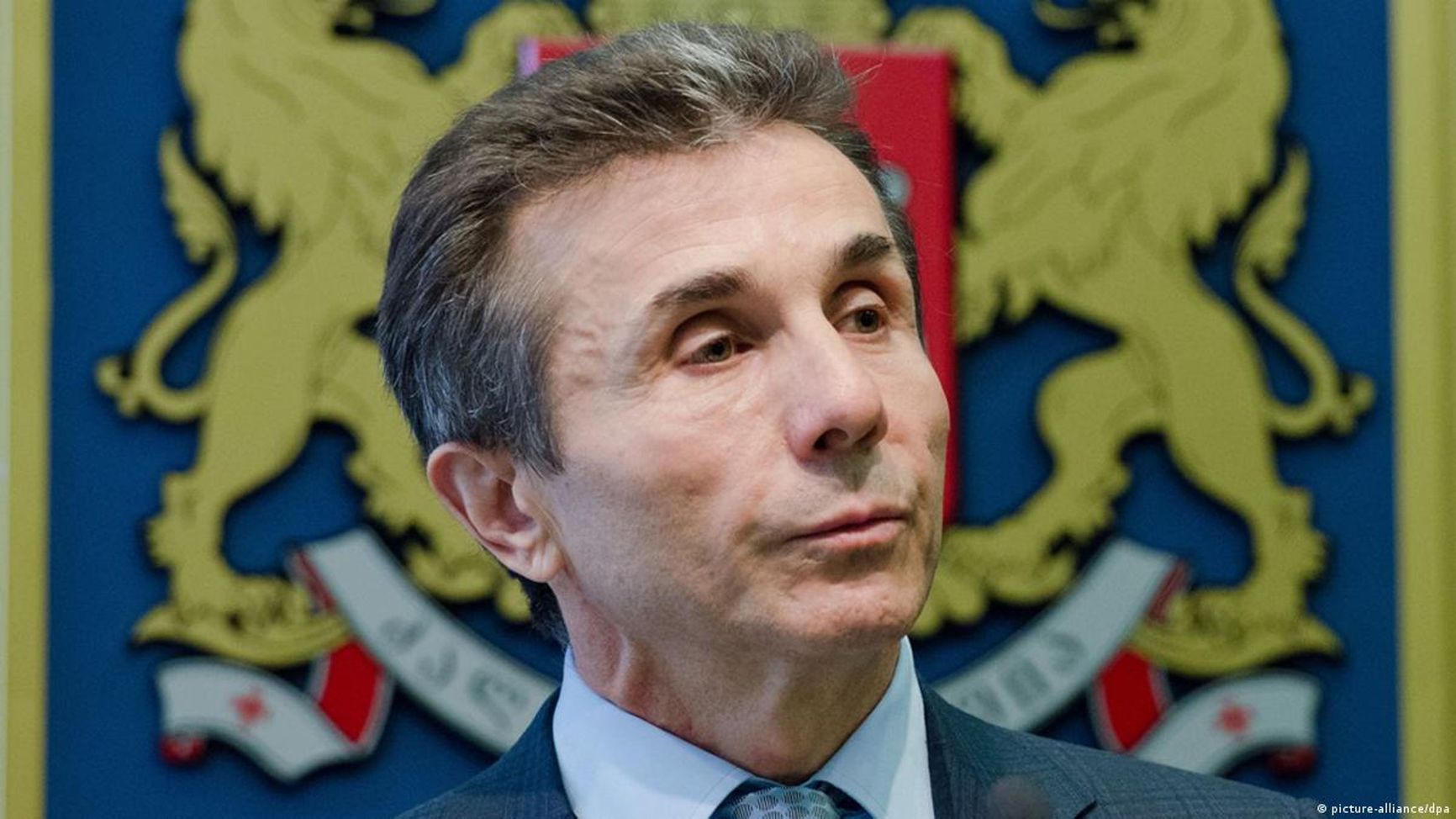On March 7, the adoption of a law in Georgia similar to Russia's foreign agent law triggered large-scale protests, with the main rally taking place in Tbilisi in front of the parliament building. The security forces used tear gas and water cannons to disperse the protesters, leading to violent confrontations. Although the president and opposition condemned the law, the majority of deputies voted for it, and it can override a presidential veto. Gela Vasadze, a political analyst, explained the situation and the details of the law passed in Georgia in an interview with The Insider.

What kind of law was adopted in Georgia?
The People's Power Movement, which is associated with Georgia's ruling party Georgian Dream, proposed a new legislative change. Originally, there were two bills that were being considered, with one of them mirroring the Foreign Agents Registration Act (FARA) in the United States. FARA requires representatives of foreign governments and political parties who promote their “principals' ” interests to be registered as foreign agents.
The second bill proposed the creation of a register of “agents of foreign influence,” which is similar to the one enacted in Russia to prosecute undesirable individuals and organizations. On March 7, the Georgian deputies passed this second bill, which was modelled after the Russian version, in its first reading.

Under the new law, non-profit organizations and media outlets that receive over 20% of their annual income from foreign sources are required to register as “agents.” However, there are some exceptions, such as organizations established by administrative bodies and sports federations. NGOs and media outlets must also submit annual financial reports, and those who violate these rules can face fines of up to GEL 25,000 (which is roughly equivalent to $9,500).
The Russian authorities and propagandists tend to draw comparisons between the FARA law and their own repressive measures. However, they conveniently overlook the fact that in Russia, these laws are applied differently, targeting their own citizens. Similarly, the Georgian authorities who initiated the changes in the law downplay its impact, claiming that it simply duplicates the American law and will not affect anyone's interests. However, the law they passed is essentially a replica of Russia's repressive version. Political scientist Gela Vasadze believes that the introduction of two bills was a deliberate tactic to create confusion.
According to Irakli Kobakhidze, the official head of Georgian Dream, the proposed legislation focuses solely on promoting financial transparency among non-governmental organizations and media entities. However, the law appears to serve no purpose other than targeting individuals or groups deemed undesirable. This is because the Georgian Tax Service already possesses all publicly accessible information on every organization, and the National Communications Commission holds data on media finances.
Even without the foreign agency law, the authorities have all financial information on every organization and media outlet
“The proposed law is not related to monitoring the finances of NGOs and media outlets because the necessary monitoring tools have been available for a considerable period and ensure complete transparency. The actual aim of the legislation is to target fifteen primary non-governmental organizations and opposition media platforms. Furthermore, labeling these entities as “foreign agents” is a senseless notion since receiving grants from Western institutions has always been seen as an honorable practice in Georgia. The very act of branding an organization as such is a challenge to society and international partners.
Although the current law on non-governmental organizations does not prosecute individuals, it is reminiscent of how similar legislation began in Russia. That's what I call oligarchic autocracy and its inevitable progression.”
Who is lobbying for the law
Before the bill was introduced, there was a smear campaign aimed at discrediting independent civil society groups that openly opposed the erosion of democratic principles in Georgia. The leaders of the governing party, Georgian Dream, accused non-profit organizations of threatening peace and stability and plotting to provoke a conflict with Russia.
The bill on “foreign influence” was initiated by the “People's Power” movement, which is a faction of the “Georgian Dream” party. The party was established and controlled by Bidzina Ivanishvili, a former Georgian Prime Minister, a Russian businessman, and a billionaire. Ivanishvili's business interests are closely tied to Russia, and he calls for the restoration of cultural and trade ties between Georgia and Russia while also advocating for the restoration of Georgia's territorial integrity without damaging relations with Russia. Prior to the 2012 elections, Ivanishvili sold his Russian business interests abruptly, and President Saakashvili attributed the rapid sale to the Kremlin's assistance and contribution to Ivanishvili's election campaign. Additionally, unofficial reports suggest that Ivanishvili owns a 1% stake in Gazprom.

Vasadze suggests that Ivanishvili may have proposed the law in response to the European Parliament's recommendation to the European Commission to impose sanctions against him. The European Parliament called for sanctions “due to the declining health of former President Mikheil Saakashvili and the inadequate response from Georgian authorities.” In October 2022, Kyiv also imposed sanctions on Ivanishvili's relatives.
To recall, Ivanishvili's political rival, Mikhail Saakashvili, is presently serving a six-year prison term in his homeland for charges of power abuse. Saakashvili asserts that he was poisoned and is in critical health. Recently, CNN released video evidence from his hospital room, supporting claims that the politician is in poor health.
“The People's Power movement is essentially the same as the Georgian Dream, who were purposely highlighted to make pro-Western and pro-Russian statements,” Vasadze says. “The West is gradually imposing sanctions against Georgian Dream leaders, and this may be a response to those soft sanctions. The government is openly displaying that they can act with impunity, to both society and international partners. The US Embassy has already labeled March 7 as a dark day for Georgian democracy. I rarely reference embassies, but this statement clarifies a lot.
Georgian Dream's actions align with Russia's interests, and their recent use of water cannons against peaceful protestors in addition to tear gas demonstrates their attitude towards dissent. In the past, during the “Gavrilov's night” <protests against the visit of Russian MP Sergei Gavrilov, who had sat in the parliament speaker's seat>, the government orchestrated provocations and then used force. Now they are using excessive force against peaceful protestors to demonstrate their power. This sends a clear message that they are not afraid and can do whatever they want”.
Although Ivanishvili has not publicly commented on the law, his protégé, Georgian Prime Minister Irakli Garibashvili, has spoken in favor of it, stating that it is intended to increase transparency of NGOs in Georgia and “strengthen the country's sovereignty.” Garibashvili is a known supporter of Ivanishvili and has strongly criticized the European Parliament's resolution to impose sanctions against him. He has also made controversial statements about Ukraine, including claiming that Georgia would have been dragged into a war with Ukraine without Ivanishvili's influence.

“If Bidzina Ivanishvili had not come to power, today, friends, we would not have a country. Why? Because it would have been dragged into a war, there would have been a second Mariupol here,” Garibashvili said.
His connection to Ivanishvili is also evidenced by the telephone leak scandal. In April 2022, journalists published a telephone conversation between Ivanishvili and Russian oligarch Vladimir Yevtushenkov, in which the former actually called Garibashvili his protégé, who is “young and takes care of everything.”
Protests
Protests against the “foreign agent” law in Georgia began immediately after lawmakers announced its submission to parliament in February 2023. Journalists and activists marched to the parliament with placards, calling for the discussion to be halted and the adoption of a repressive law similar to the one in Russia to be prevented.
On March 2, when the parliamentary debate on the “American” and “Georgian” bills commenced, several hundred Tbilisi residents marched along the central Rustaveli Avenue towards the parliament. However, the parliamentary security service prevented journalists and NGO representatives from attending the hearings on the draft laws, and several opposition politicians were forcibly removed from the session hall. The situation escalated, resulting in detentions.
On March 7, the biggest protest occurred as the bills were unexpectedly put up for consideration during a plenary session of the parliament. Within hours, the bill analogous to the Russian law was passed in first reading. It is estimated that over 10,000 people gathered near parliament on Rustaveli, which led to a confrontation with the police. The protesters were met with tear gas and water cannons, resulting in the dispersal of the crowd. Sixty-six people were detained at the end of the rally.
Western Reaction
Following the adoption of the “foreign agent” law, both Brussels and Washington issued warnings that Georgia's chances of obtaining EU candidacy would be jeopardized. After the protests were quelled, the US State Department stated that it would consider imposing sanctions on certain Georgian officials who were responsible for the violence.
In early February, the EU released a report that evaluated Georgia's progress towards European integration positively, despite opposition allegations that the government violated democratic principles. The EU appeared unfazed by the sanctions imposed on Ivanishvili.

“For me, the position of our Western partners has always remained a mystery,” Vasadze says. “Indeed, there was a government that had a clear goal of Western orientation and European integration, but there were also questions surrounding it. Then, a new government came into power, which is attempting to have its cake and eat it too, but it is being treated with much more leniency. Despite rejecting Charles Michel's agreement on the electoral system, the Georgian Dream government is still being praised.”
The situation regarding the war in Ukraine is not straightforward either. While Georgia is a member of the Ramstein coalition and has publicly stated its position, it has also become a grey area for Russia. The Georgian authorities have made demands to their Western allies to enable them to profit from Russia, like a petulant child. Furthermore, amid requests not to impose sanctions on Russia due to economic repercussions, Georgia refused to supply Buk missile systems to Ukraine. As a result, the situation has escalated to the point where peaceful protesters are being dispersed using tear gas and water cannons.